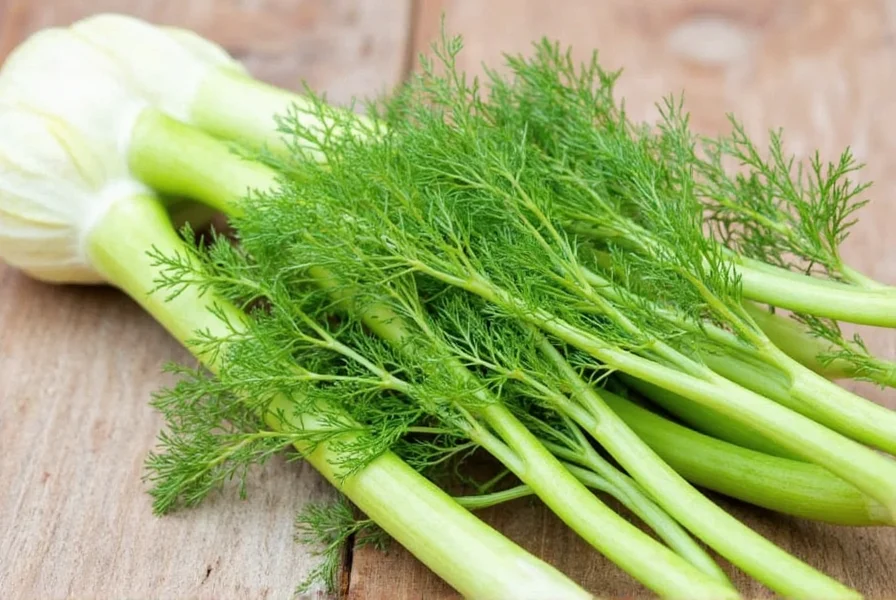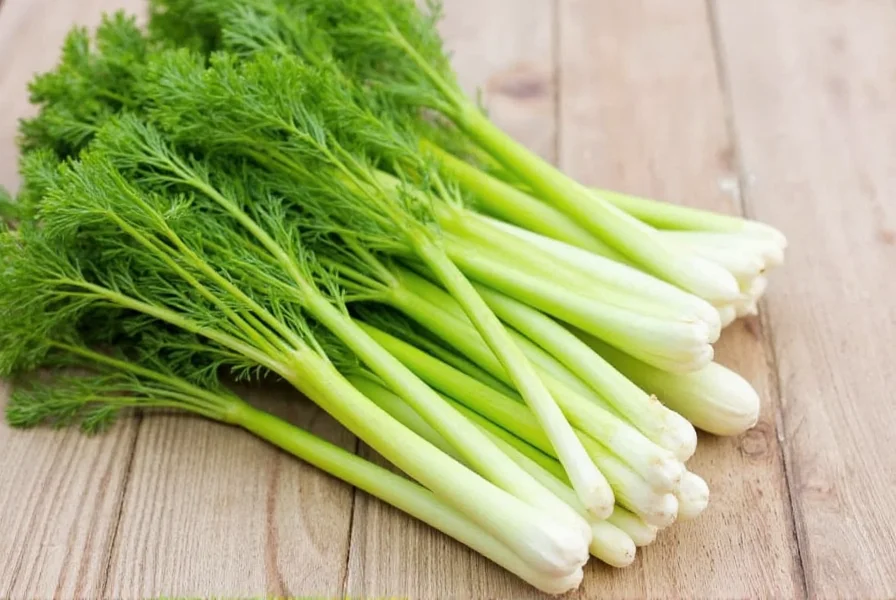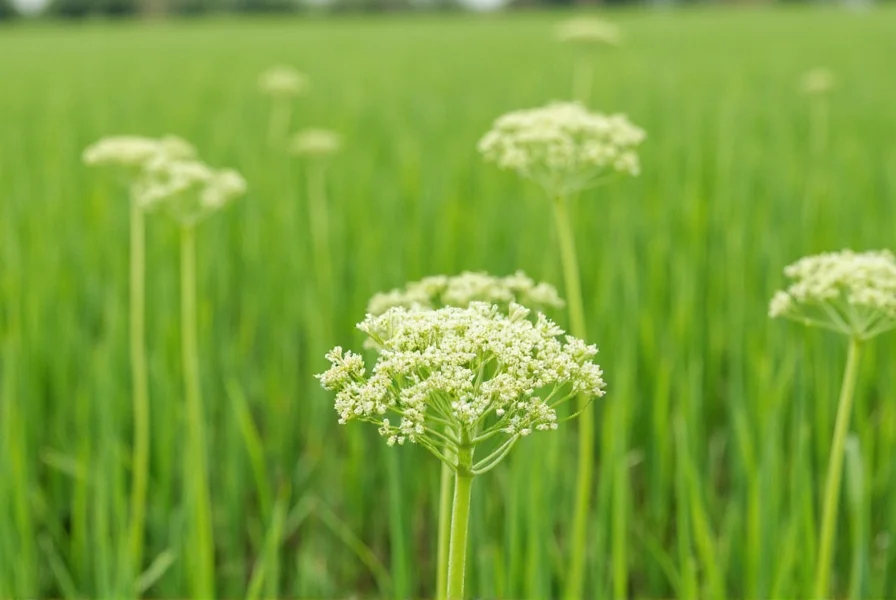Fennel (Foeniculum vulgare) has been valued for centuries across multiple cultures for both its culinary versatility and potential health benefits. This aromatic herb, with its distinctive anise-like flavor, offers more than just taste enhancement—it provides measurable nutritional and wellness advantages supported by both traditional use and modern research.
Understanding Fennel: More Than Just a Flavorful Herb
Native to the Mediterranean region, fennel is a hardy perennial plant with feathery leaves, yellow flowers, and aromatic seeds. All parts of the plant—bulb, leaves, and seeds—are edible and utilized differently in cooking and traditional medicine. The bulb resembles celery in texture but delivers a sweet, licorice-like flavor that mellows when cooked.
Nutritional Powerhouse: What Makes Fennel Beneficial
Fennel's nutritional profile explains many of its health-promoting properties. A single cup (87g) of raw fennel bulb provides:
| Nutrient | Amount | Daily Value % |
|---|---|---|
| Calories | 27 | 1% |
| Fiber | 4.1g | 15% |
| Vitamin C | 12mg | 13% |
| Potassium | 360mg | 8% |
| Folate | 40mcg | 10% |
| Calcium | 43mg | 3% |
Fennel seeds contain additional beneficial compounds including anethole (responsible for its distinctive flavor), flavonoids, and phenolic compounds that contribute to its antioxidant properties.

Top Health Benefits of Fennel Supported by Research
Digestive Health Support
One of the most well-documented benefits of fennel relates to digestive health. Traditional medicine systems worldwide have used fennel to address bloating, gas, and indigestion. Modern research suggests fennel's antispasmodic properties help relax gastrointestinal tract muscles. A 2016 review in Frontiers in Pharmacology noted fennel's effectiveness in reducing infant colic symptoms, while studies indicate fennel tea may alleviate symptoms of irritable bowel syndrome (IBS).
Natural Anti-Inflammatory Properties
Fennel contains several compounds with anti-inflammatory effects. Research published in Food and Chemical Toxicology demonstrated that fennel extract reduced inflammation markers in animal studies. The flavonoids and phenolic compounds in fennel work as natural anti-inflammatories, potentially helping reduce chronic inflammation associated with various health conditions.
Rich in Antioxidants
Fennel serves as a valuable source of antioxidants including vitamin C, selenium, and various flavonoids. These compounds combat oxidative stress by neutralizing free radicals in the body. A study in Journal of Food Science and Technology found fennel seeds exhibited significant antioxidant activity, potentially contributing to cellular protection and overall health maintenance.
Respiratory Health Benefits
Traditional Ayurvedic medicine has long used fennel for respiratory conditions. The herb's expectorant properties may help clear mucus from airways. Fennel tea or steam inhalation with fennel can provide relief during colds or seasonal allergies. While more human studies are needed, preliminary research suggests fennel's compounds may support respiratory wellness.
Women's Health Support
Fennel shows promise in supporting women's health, particularly regarding menstrual discomfort. A randomized controlled trial published in BMC Complementary Medicine and Therapies found that fennel extract significantly reduced menstrual pain intensity compared to placebo. The herb's phytoestrogen content may help balance hormones naturally, though more research is needed in this area.
Nutritional Benefits for Overall Wellness
Beyond specific health conditions, fennel contributes to general wellness through its nutrient density. The high fiber content supports healthy cholesterol levels and blood sugar regulation. Potassium in fennel helps maintain healthy blood pressure, while vitamin C boosts immune function and skin health. Incorporating fennel into your regular diet provides these benefits without significant calories.
Culinary Applications: How to Use Fennel Effectively
Understanding what fennel is good for extends to practical kitchen applications. Each part of the plant serves different culinary purposes:
- Bulb: Slice raw for salads, roast for caramelized sweetness, or braise for tender side dishes
- Fronds: Use as fresh herb garnish similar to dill or parsley
- Seeds: Toast and grind for spice blends, brew as tea, or use whole in pickling
When exploring what fennel is good for in cooking, consider these pairings:
- Fennel bulb with citrus and olive oil for refreshing salads
- Roasted fennel with fish or chicken for Mediterranean dishes
- Fennel seeds in Indian curries and spice mixes
- Fennel tea with honey for post-meal digestion

Selecting and Storing Fennel for Maximum Benefit
To maximize what fennel is good for, proper selection and storage matter. Choose firm, heavy bulbs with crisp stalks and vibrant green fronds. Avoid bulbs with brown spots or flowering stalks, which indicate maturity beyond peak freshness.
Store fennel wrapped in a damp paper towel inside a plastic bag in your refrigerator's crisper drawer. Properly stored, fennel bulbs remain fresh for 7-10 days. Fennel seeds maintain potency for 6-12 months when stored in an airtight container away from light and heat.
Potential Considerations When Using Fennel
While fennel offers numerous benefits, certain considerations apply. Some individuals may experience allergic reactions, particularly those sensitive to plants in the Apiaceae family (carrots, celery, parsley). Pregnant women should consume fennel in culinary amounts only, as medicinal quantities might stimulate uterine activity. Those with estrogen-sensitive conditions should consult healthcare providers before using fennel medicinally due to its phytoestrogen content.
Conclusion: Maximizing Fennel's Potential
Understanding what fennel is good for reveals its dual value as both a flavorful culinary ingredient and a plant with meaningful health-supporting properties. From digestive wellness to antioxidant protection, fennel offers multiple benefits that can be easily incorporated into daily life through thoughtful culinary use. Whether you're exploring fennel for digestive health benefits or seeking to expand your culinary repertoire, this versatile herb deserves a regular place in your kitchen and diet.











 浙公网安备
33010002000092号
浙公网安备
33010002000092号 浙B2-20120091-4
浙B2-20120091-4